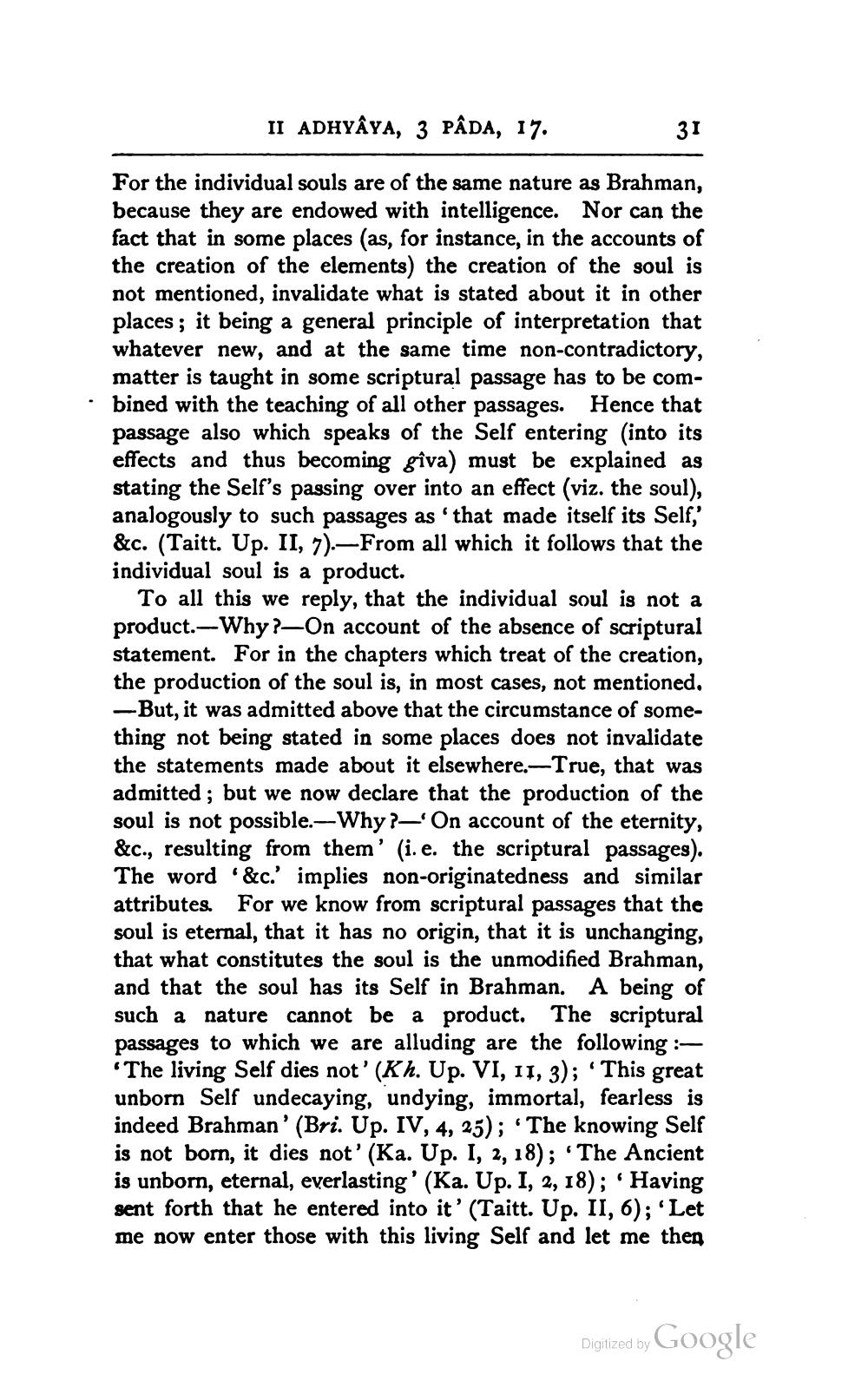________________
II ADHYÂYA, 3 PÂDA, 17.
31
For the individual souls are of the same nature as Brahman, because they are endowed with intelligence. Nor can the fact that in some places (as, for instance, in the accounts of the creation of the elements) the creation of the soul is not mentioned, invalidate what is stated about it in other places; it being a general principle of interpretation that whatever new, and at the same time non-contradictory, matter is taught in some scriptural passage has to be combined with the teaching of all other passages. Hence that passage also which speaks of the Self entering into its effects and thus becoming giva) must be explained as stating the Self's passing over into an effect (viz. the soul), analogously to such passages as 'that made itself its Self, &c. (Taitt. Up. II, 7).–From all which it follows that the individual soul is a product.
To all this we reply, that the individual soul is not a product. Why?-On account of the absence of scriptural statement. For in the chapters which treat of the creation, the production of the soul is, in most cases, not mentioned. -But, it was admitted above that the circumstance of something not being stated in some places does not invalidate the statements made about it elsewhere.-True, that was admitted ; but we now declare that the production of the soul is not possible.—Why ?—'On account of the eternity, &c., resulting from them' (i.e. the scriptural passages). The word '&c.' implies non-originatedness and similar attributes. For we know from scriptural passages that the soul is eternal, that it has no origin, that it is unchanging, that what constitutes the soul is the unmodified Brahman, and that the soul has its Self in Brahman. A being of such a nature cannot be a product. The scriptural passages to which we are alluding are the following :.The living Self dies not' (Kh. Up. VI, 11, 3); “This great unborn Self undecaying, undying, immortal, fearless is indeed Brahman' (Bri. Up. IV, 4, 25); "The knowing Self is not bom, it dies not' (Ka. Up. I, 2, 18); 'The Ancient is unborn, eternal, everlasting' (Ka. Up. I, 2, 18); Having sent forth that he entered into it' (Taitt. Up. II, 6); 'Let me now enter those with this living Self and let me then
Digitized by
Digitized by Google




